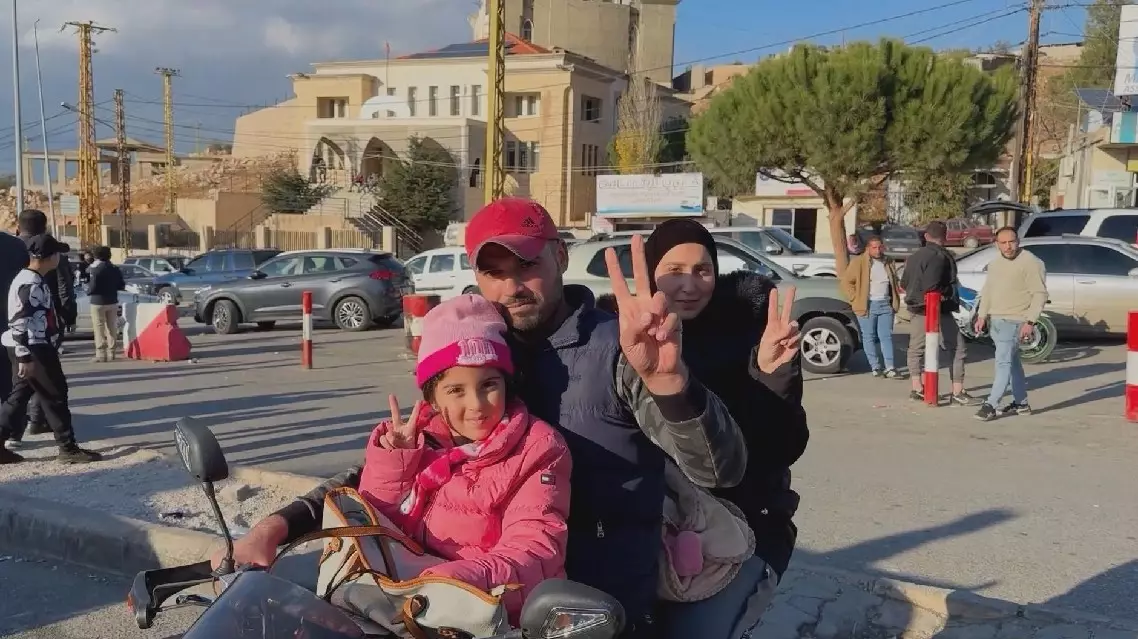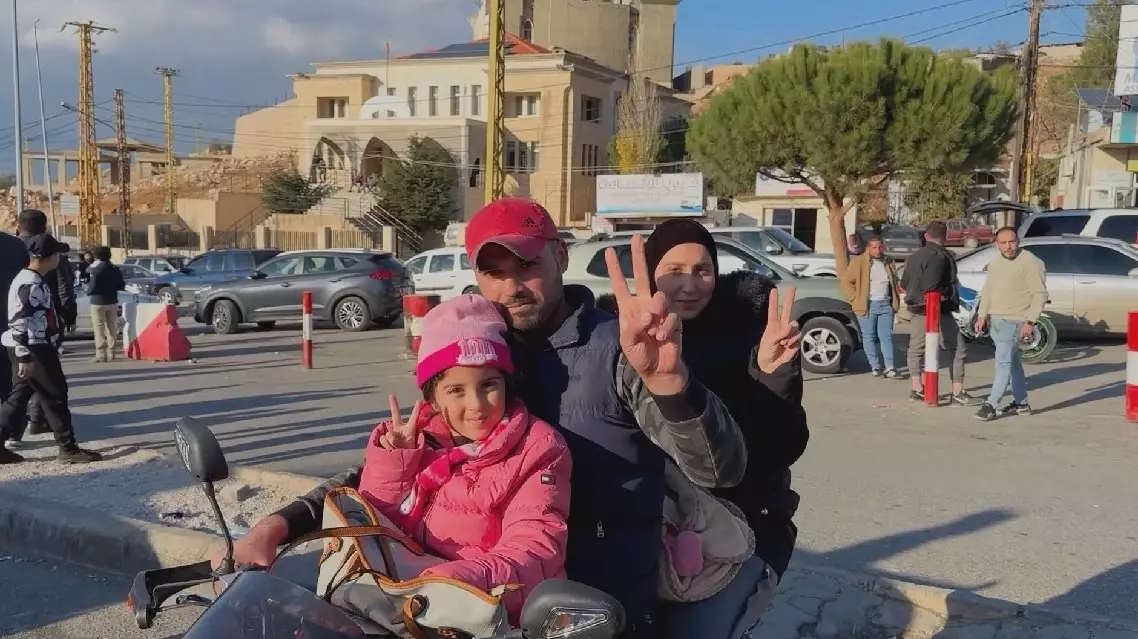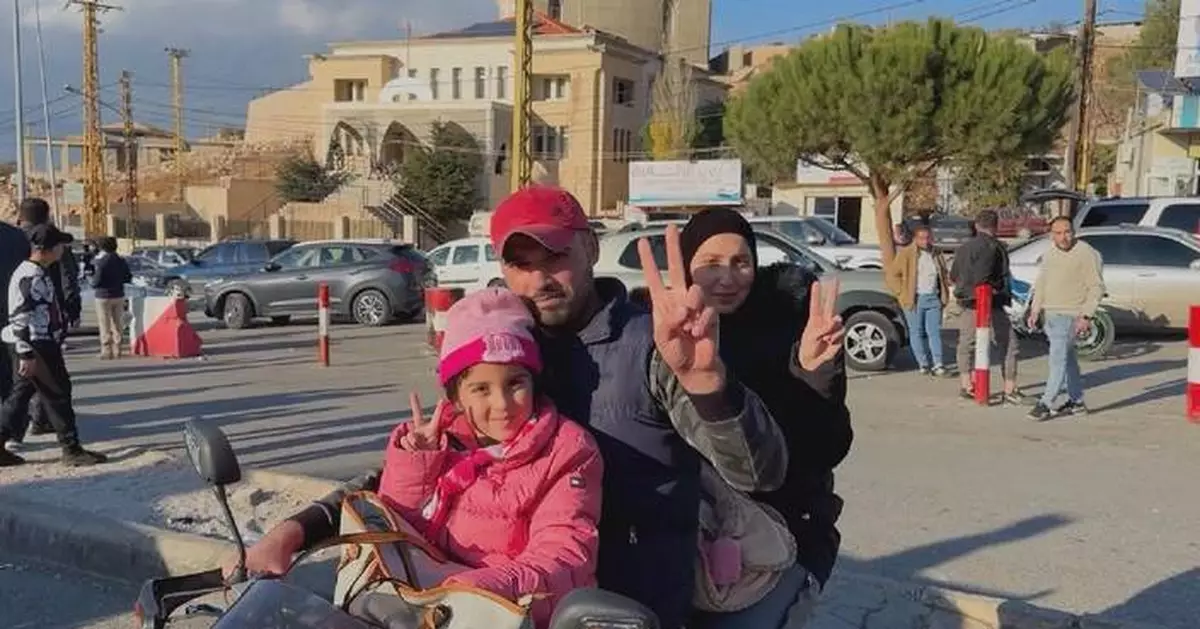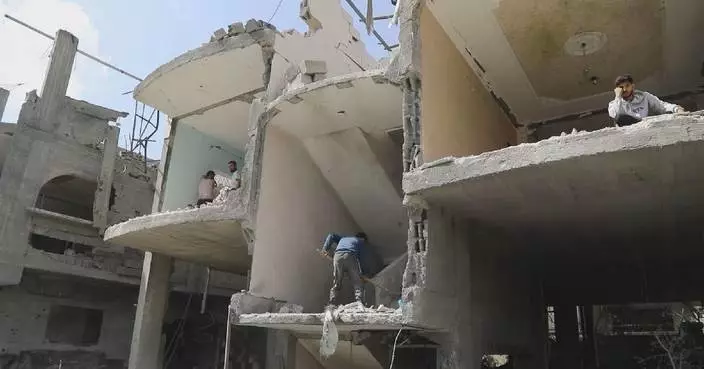Hundreds of Syrians, including refugees, have started leaving Lebanon for their homes after opposition forces took control of Damascus.
This is the second wave of return after around 400,000 people left during the Hezbollah-Israel conflict in Lebanon.
According to official figures, Lebanon hosts more than 2 million Syrian refugees, including nearly 300,000 who are not officially registered with the United Nations High Commissioner for Refugees.
Many reasons had pushed Syrians, especially young men, to leave the country, including fear of opposing al-Assad's government, escaping from compulsory military service which had no time limit since the outbreak of the conflict in Syria, and the terrible economic situation.
"We miss (Syria) so much, we can't describe our joy. My children were born here, they don't know Syria, they didn't drink its water," said a returnee.
"I left Syria in 2016, and it feels good now that I'm returning to my country. In the end, no matter how long it took, it's still our country, I can't describe my joy," said another returnee.
"Indescribable joy, what can I tell you? I left Syria in 2014, I'm going back to Damascus, I miss it," said another returnee.
"I'm Rani Munther from As-Suwayda. Our happiness is great. I left Syria two years ago. Everyone is happy as you can see, and now we are back," said another returnee.
Lebanon's northern provinces have recorded a displacement movement from border villages inside Syria to the city of Hermel, opposite the Syrian town of Qusair.
Meanwhile, the Lebanese army has reportedly reinforced its presence to keep the newly displaced people in the area.
"We were in Syria at night, we were about to sleep when suddenly they told us to collect our things and leave our home, and we came to Lebanon, and Lebanon couldn't receive us. Honestly, the situation was very bad in Lebanon that time," said a Syrian refugee.
Syrian President Bashar al-Assad has reportedly resigned and arrived in Russia for asylum as his government collapsed on Sunday following a sweeping offensive by militant groups.
The groups, led by Hayat Tahrir al-Sham (HTS), waged a major offensive from northern Syria since Nov. 27, and have since swept southwards through government-held areas, capturing the capital Damascus within 12 days.
The fall of al-Assad's government brought a surprise end to the nearly 14-year Syrian civil war, adding to uncertainties for both the war-torn nation and the broader Middle East.
Lebanese Prime Minister Najib Mikati has called to distance Lebanon from the repercussions of the developments in Syria and tighten control over the border.
The General Security of Lebanon has closed land border crossings with Syria except for the Masnaa Border Crossing, limiting the entry of Syrians but easing procedures for refugees returning to Syria.

Syrians in Lebanon return home after fall of al-Assad's government

Syrians in Lebanon return home after fall of al-Assad's government




















































